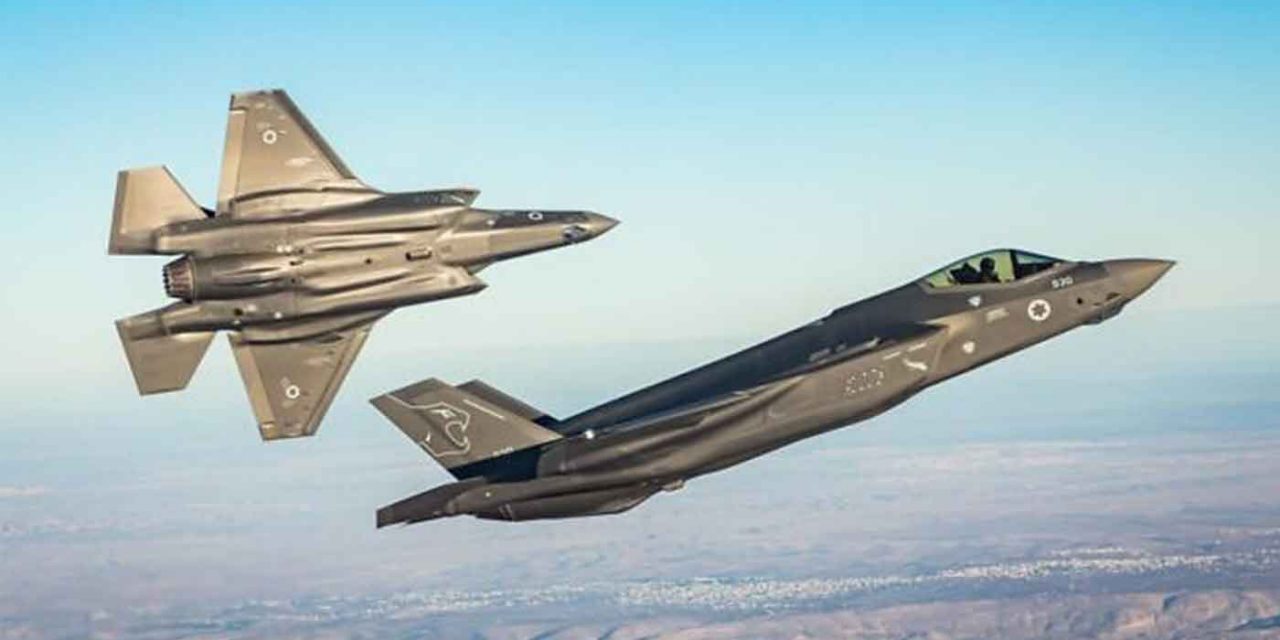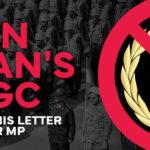- Iran or a proxy could launch an attack against Israel imminently.
- UK and US has committed support to Israel, but recent undermining of Israel’s war against Hamas has emboldened Israel’s enemies.
- Over 1,000 Hezbollah rockets have been fired towards Israel since 7 October.
- Iran’s ideology is a threat to both Israel and the West.
Iran could launch an attack against Israel imminently, according to reports citing US intelligence. Iran has been threatening a revenge attack against Israel since an airstrike on a building adjacent to the Iranian consulate in Damascus on 1 April, which killed several Islamic Revolutionary Guard Corp commanders, including two generals.
According to intelligence reports, an attack could possibly be on “Israeli soil”, given that Iran considered the strike in Damascus as if it was on “Iranian soil” itself. It isn’t clear whether the attack will be made by Iran directly, or by one of its proxies, such as the Hezbollah terror group in Lebanon. Israel is expected to respond to any attack against it.
President Joe Biden has vowed that the US commitment to defend Israel against Iran was “ironclad”. Meanwhile, the UK’s Foreign Secretary David Cameron has urged Iran to ‘de-escalate’ the situation. The support expressed by two of Israel’s closest allies, the US and UK, is a welcomed reprieve to what has been a troubling time of mixed messages from the West. Israel has been heavily criticised by the White House over recent weeks for its activities in Gaza – pressuring Israel to accept a ceasefire without conditions and urging it not to enter Rafah. Cameron meanwhile was considering an arms embargo against Israel only two weeks ago. London and Washington will wish to separate Israel’s threat from Iran from the war against Hamas, but the reality is that persistent undermining of Israel’s actions has likely emboldened Israel’s enemies, including Iran, their proxies, and even Hamas.
It is important to note that the threat to Israel didn’t begin with the 1 April strike in Damascus – an attack Israel has been accused of carrying out, although has not taken responsibility for. Since 7 October, over 1,000 rockets have been fired into northern Israel by Hezbollah, yet this has hardly received any news coverage.
The knife-attack of an Iranian dissident journalist in London last month is a recent reminder that Iran’s terror arm stretches beyond the Middle East and the UK government will be aware that a war between Iran and Israel will increase the Iranian threat towards Britain. Depending on the scale of the imminent attack against Israel, the US and UK are positioned ready to assist Israel with a United States aircraft carrier heading to the eastern Mediterranean. Meanwhile, an attack by the Iran-backed Houthi’s could involve Britain in a more direct way.
Understanding Iran’s ideology
Iran has an obsession with destroying Israel that began in 1979 after the violent Islamic Revolution empowered radical fundamentalists committed to dominating the Middle East. Iran’s hatred of Israel and America has been the foundation of its foreign policy ever since. There is also a hatred for the United Kingdom, as seen in chants and flag burnings during pro-regime demonstrations over the years.
In 2005, Mahmoud Ahmadinejad, then president of Iran, closed a speech at the United Nations with a call for the “mighty Lord” to “hasten the emergence” of Imam Mahdi, a direct descendent of the Muslim prophet Muhammad. Shia Islam holds the view that the Mahdi, as the “redeemer” of Islam, will return from hiding and unite and empower Muslims. It is upon this ideology that the Iranian regime dramatically transformed its religious and political landscapes.
The stated aim of the 1979 Iranian Revolution was to overturn the reign of the shah and restore Islamic ideology to Iranian society.
Khomeini made Shia Islam an inseparable element of the country’s political structure. Khomeini ushered in a new form of government anchored by the concept of velayat-e faqih, or rule of the Islamic jurist and argued that government should be run in accordance to sharia, or Islamic law. For that to happen, an Islamic jurist—or faqih—must oversee the country’s political structure. Constitutional changes following the revolution established a system of government based on three pillars of power—the executive, judicial, and legislative branches. But sitting atop the Islamic Republic’s power structure was Khomeini.
What starts in Iran doesn’t stay in Iran. The Iranian regime now has a foothold throughout the Middle East. The Iranian leadership has repeatedly called for the annihilation of Israel and the so-called “liberation of Jerusalem”. When Iran develops its missiles, it is proud to inscribe them with “death to Israel” and show them to the world.
Iran has a foothold in Lebanon through its proxy, Hezbollah, a terror organisation that has an estimated 150,000 rockets ready to use against Israel. Likewise, Iran now has a military presence in Syria having exploited the Syrian civil war. South of Israel, Iran is funding Hamas, despite it being Sunni, as well as Islamic Jihad, which is Shia, both of which call for the destruction of Israel.











